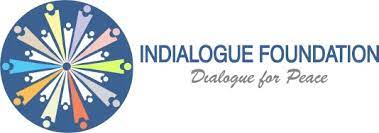Indialogue Foundation
cordially invites for a lecture titled
“Condition of Water Bodies in Hyderabad and affect to Public Health”
by Prof. K. Purushotham Reddy,
Retired Professor of Political Science, Osmania University
and renowned Environmentalist, expert in Hyderabad’s ecosystem
Date: Saturday, 2nd February 2013
Time: 16:00
Venue: Indialogue Centre, Aziz Villa, 8-2-684/1/A, Road No. 12, Banjara Hills
RSVP: We kindly request to confirm your participation
Contact: Hyderabad@indialogue.in, 9866556021
Concept Note: Many times we may not worry about the water’s pollution as it flows away from our house through nalas and rivers. But the studies suggest that highly contaminated water in Musi River is used for agriculture purpose in lower banks of river. The agricultural produces as vegetable and fruits comes back to our own homes. Years back you could have a time pass in Hussain Sagar’s walk ways and enjoy serene. Today it is a place from where you avoid even passing. GHMC has come with a strong move with a Save Hussain Sagar campaign to combat pollution and to clean lake. Other sad story is Durgam Cheruvu, a lake that is used to be known as Secret Lake but it is surely not today. The massive development around lake is affecting the quality of water, and the smell which can be felt is evidence to this course. Unlike other causes of illness the polluted water is a source of numerous types of health hazards distressing all organs of our system. As our bodies consist of mainly water the quality of water that we consume directly shapes our physiological, psychological and as well social well being. We kindly invite to listen from Prof. K. Purushotham Reddy an expert on Hyderabad’s ecosystem, who is tirelessly working for betterment of environmental condition. Let’s learn and be part of green movement to put our contribution for sustainable development.
